Many of us take our breathing for granted. After all, if you can't breathe, you'll be dead. Lungs give us life, oxidize our blood to keep our brains alive and protect our bodies from harmful substances.
Given that our lungs do all this, it is good to support them as much as we can, so that we can keep them clean and healthy. Otherwise, if we do not do it, it can lead to various lung diseases and even the emergence of chronic ones, as the lungs are extremely closely connected with the circulatory system.
Circulatory system and gas exchange
The circulatory system consists of three independent systems that work together: the heart (cardiovascular), lungs and arteries, veins, coronary and portal vessels (systemic). This system is responsible for the flow of blood, oxygen, nutrients and other gases, as well as hormones, which move between cells.
Our body's cells need energy to do their job. They receive energy by combining sugars or other nutrients with oxygen and this allows us to function as a living, breathing human being.
During this energy generation, carbon dioxide is formed. However, too much carbon dioxide can poison cells, which is why the blood carries oxygen (from the lungs) to the body's cells and takes away their carbon dioxide. The blood that returns to the heart and lungs is dark red, which means that it has taken the carbon dioxide from the body's cells, leaving most of its oxygen in the cells.
Carbon dioxide in the blood is replaced by oxygen in the alveoli. These small air sacs in the lungs are the size of a cell and are surrounded by capillaries that are also microscopic in size. Blood from the heart flows through these capillaries and collects oxygen from the alveoli. At the same time, carbon dioxide passes through capillaries and alveoli. When you exhale, you release carbon dioxide.
The bright red oxygen-rich blood returns to the heart and is pumped to various parts of the body.
Herbs for lung cleansing
These 15 lung cleansing herbs can be easily integrated into your diet. Whether you include them in a salad, drink them in the form of tea or take them as a tincture, these herbs will surely keep your lungs healthy.
1. Thyme

Thyme is one of the most useful herbs for the lungs. It supports respiratory health and fights bacterial infections such as pneumonia. A 2016 study concluded that thyme is undoubtedly one of the most protective and supportive herbs for the bronchial tract of the lungs. Researchers explain that thyme has expectorant, mucolytic, antitussive and antispasmodic action. Thyme can be taken as a tincture, as a tea or as a flavoring essential oil in a diffuser.
2. Common Mullein
Mullein is an incredibly effective plant for clearing the lungs of mucus, phlegm and chronic inflammation. Mullein acts as a strong expectorant, which means it helps the body remove excess mucus and secretions from the lungs, soothing the mucous membranes with its softening properties. It can help with bronchitis, severe cough, colds and even asthma. My favorite way to take advantage of the amazing benefits of this herb is in the form of tea, by adding 2 tablespoons of dried leaves and soaking them in 300 ml of hot water for 15 minutes.
3. Mint
Menthol, a compound in mint, is an antispastic and anti-inflammatory agent, which helps relax the airways. Peppermint oil is one of the best ways to use the beneficial properties of mint, as it is also rich in other medicinal lung compounds such as Caryophyllene, Lemon, Pinene and Pulegone. Peppermint oil helps to clear the unpleasant symptoms of congestion of the upper respiratory tract, which may be due to allergies, asthma, colds, flu, bronchitis and others. To use peppermint oil, you can rub a few drops on your chest (in combination with a base oil such as almond) or flavor the air by mixing a few drops of oil in a diffuser with water.
4. Eucalyptus
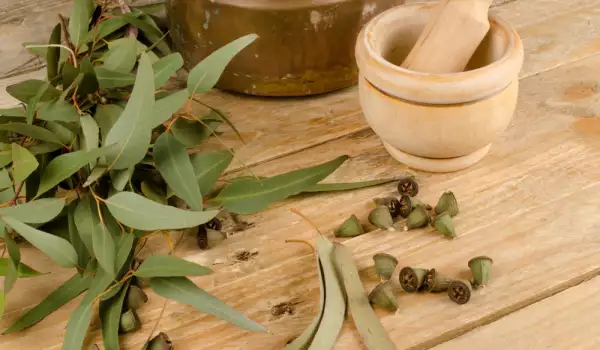
Eucalyptus is often used to relieve throat irritations and to improve the general condition of the respiratory tract. It is very effective in treating asthma, chronic bronchitis, whooping cough, flu, pneumonia and even tuberculosis. It has antiseptic, anti-inflammatory, expectorant, mucolytic action. Its use in asthma has a proven healing effect, dilating blood vessels and allowing the lungs to receive more oxygen.
To use evcalyptus, you can mix eucalyptus essential oil with a base oil such as jojoba oil and then rub it on the upper chest. Alternatively, you can spray the oil with a diffuser or drop a few drops on specially sold wooden stands for this purpose. Aromatherapy uses the delicate power of aromatic molecules to deal with both lung problems and the nervous tension that causes them. Contraindications: To be taken in small doses. Do not use in the first half of pregnancy, for children under 6 years, in case of epilepsy, severe hypertension, before sunbathing.
5. Lungwort
This beautiful blooming herb has been used since ancient times around the world for various respiratory ailments, including colds, coughs, catarrhal problems and bronchial detoxification. It is an anti-inflammatory agent, as well as a blood-forming factor, it softens and helps with coughs.
To use this herb to treat lung diseases, intake it as a tincture or drink in the form of tea. Dose for 1 day: 2 tablespoons of finely chopped herb is poured with 2 cups of boiling water and after it cools, it is strained and sweetened with sugar or honey.
6. Oregano
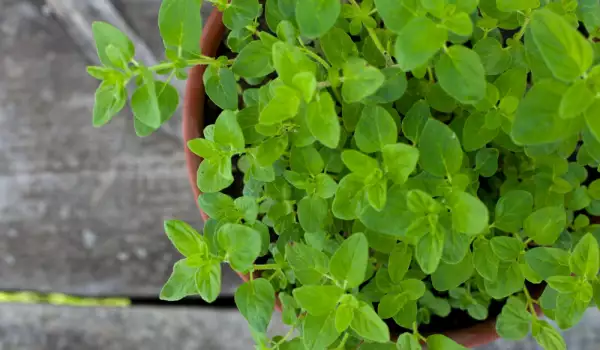
The active ingredients in oregano, essential oils (carvacrol, thymol, caryophyllene, etc.) neutralize free radicals and their harmful effects. Carvacrol and thymol also have clinically proven antibacterial activity. The natural anti-inflammatory compounds in oregano make it one of the best natural remedies used to relieve the symptoms of the flu or the common cold.
The rosemary acid in it reduces the accumulation of fluids and even swelling during an allergic attack, which makes it a completely natural compound that reduces histamine. It can help reduce nasal congestion by soothing excess mucus production and relieving allergy-related sneezing.
You can diffuse oregano essential oil to inhale its beneficial properties, or consume the oil directly (make sure the oil is edible - most essential oils are not, but those sold as a dietary supplement can to be consumed). And let's not forget the numerous applications of oregano as a spice in cooking.
7. Lobelia
This is another magical herb that helps cleanse the lungs. It contains the alkaloid Lobeline, which is an expectorant, diaphoretic and bronchodilator and supports the respiratory system. It is recommended for various respiratory problems such as pneumonia, cough, asthma, secretions and bronchitis.
As an expectorant, this herb breaks down phlegm and mucus and helps open the airways by helping you breathe harder and deeper. Lobelia is thought to stimulate the adrenal glands to release epinephrine, which relaxes the airways and allowing easier breathing. You can take lobelia as a tincture or tea.
Note: Pregnant women, nursing mothers and children should not use the herb without medical advice. At high doses, side effects such as nausea, vomiting, tremor and general fatigue are observed. In the past, the herb has been used to induce vomiting in food poisoning.
8. Plantain

This ubiquitous grass, which grows almost everywhere in the wild, can really help our lungs! Plantain leaves stimulate the production of mucus, which makes them a great remedy for bronchitis, laryngotracheal catarrh, dry cough or sore throat. Plantain is recommended for all kinds of broncho-pulmonary pathologies and respiratory diseases. Since you can find this herb even in your backyard, it is probably the most convenient lung cleanser. There are two species of plantain: narrow-leaved Plantago lanceolata and broadleaved species with the Latin name - Plantago major (broadleaved). The first has stronger anti-inflammatory and analgesic properties, while the second is preferred for internal diseases and superficial wounds.
9. Chaparral
Note: this herb is not recommended for long-term use or for people with liver disease. The herb relieves lung inflammation and regulates the body's natural response to histamine, which makes it extremely useful in the treatment of bronchitis, allergies and colds. In addition, this plant contains a powerful antioxidant called nordihydroguaiaretic acid (NDGA), which reduces the ability of abnormal (cancer) cells to generate energy. Chaparral can be drunk as a tea by soaking 5 tablespoons of dried leaves and stems in 250 ml of boiling water.
10. Sage (Salvia officinalis)
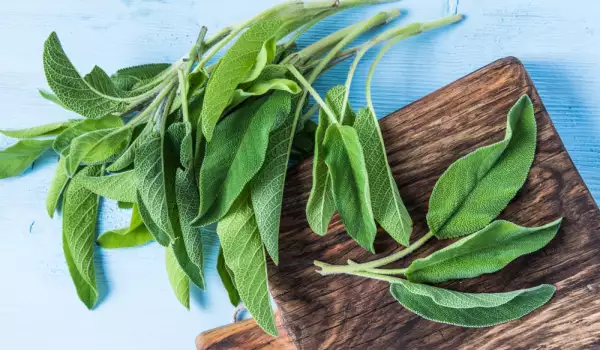
Sage contains powerful aromatic oils such as thujone, camphor, terpene and salven, which help open the sinuses and relieve lung congestion. Sage even has the ability to inhibit the growth of cancer and metastases in the lungs and other parts of the body. The use of sage is most common in cooking as a spice, also for inhalation by inhaling vapors of essential oil through a diffuser or by drinking tea from dried leaves of the herb.
11. Licorice (Glycyrrhiza glabra)
Licorice is an herb that is often recommended for the treatment of respiratory problems. It has strong anti-inflammatory and mucolytic properties, which help faster and easier removal of sticky secretions from the bronchi, dilates the airways so that oxygen can move more freely. Drinking tea from the root three times a day can help treat coughs, asthma, laryngitis, bronchitis, chronic bronchitis and hoarseness and has a strong expectorant effect.
Note: Pregnant women, nursing mothers and children should not use the herb. Long-term use is contraindicated.
12. Coltsfoot
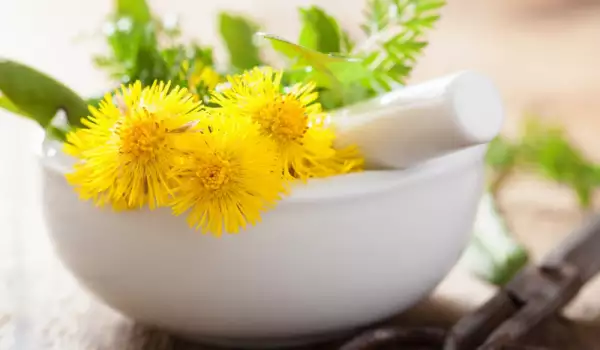
Coltsfoot has flowers that look a lot like dandelions (and are just as healing). This herb is great in reducing inflammation and effectively treats bronchitis, pneumonia, asthma and tuberculosis. However, it is best not to take long-term and excessive, but only for therapeutic purposes, when necessary and only after consulting a doctor. This herb is best taken as a tincture.
13. Marshmallow plant (Althaea officinalis)
This herb has a calming effect and helps reduce inflammation, irritation and cough. Its antitussive and mucolytic properties help to reduce throat irritation, reduce swelling in the lymph nodes, speed up healing and reduce dry cough. For these reasons, its extract is added to many cough syrups and throat tablets. 1 tbsp. of the herb is poured into 500 ml of lukewarm water. Soak it for 2 hours. Drink it sweetened with honey 15 minutes before eating. One wine glass of it, 4 times a day.
14. Chickweed
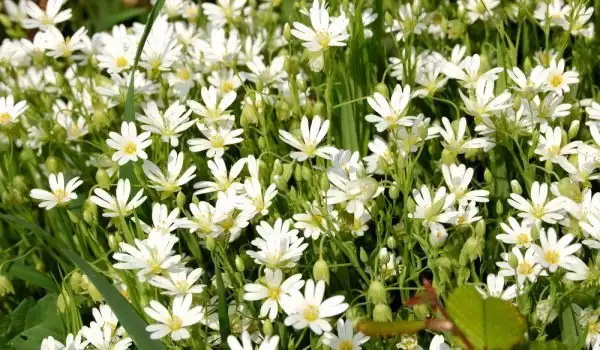
The herb contains mucous substances, some amino acids, vitamins C and E, carotenoids, saponins, flavonoids and more. In fact, it is considered a weed and can be found almost everywhere: in populated areas, along roads, in yards, near fences, like weeds in fields, wet grassy places. It has a strong anti-inflammatory effect. It is used in the form of infusion mainly in folk medicine for inflammation of the respiratory tract, urinary tract and digestive organs. Freshly picked leaves are used in cooking for salads, pesto and smoothies.
15. Elecampane (Inula helenium)
Warning: Do not use during pregnancy and lactation. This plant is great for cleansing the lungs. It is used in Eastern medicine in the treatment of bronchitis and asthma, influenza, colds, tuberculosis, laryngitis and pharyngitis, as it acts as an effective, natural expectorant. Elecampane contains inulin, a detoxifying phytochemical, which covers and soothes the bronchi of the lungs to help them relax. As a result, wheezing and coughing are relieved.
Decoction of the roots is used for irritating cough, bronchitis, asthma, upper respiratory problems. Tinctures are used for bronchitis or chronic respiratory complaints and are sometimes mixed with thyme tincture for added effect. Syrups are prepared from infusions or decoctions of roots and flowers and are used for coughs.
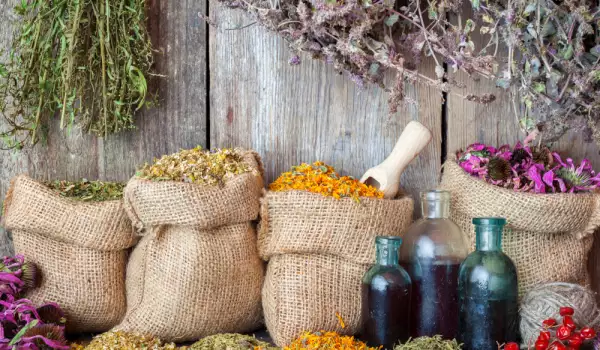
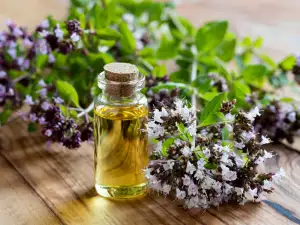




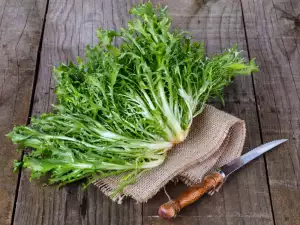
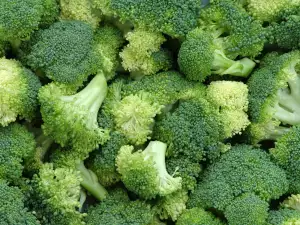



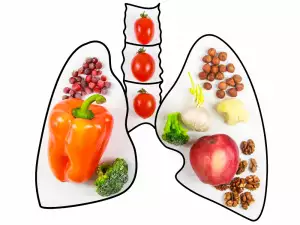








Comments